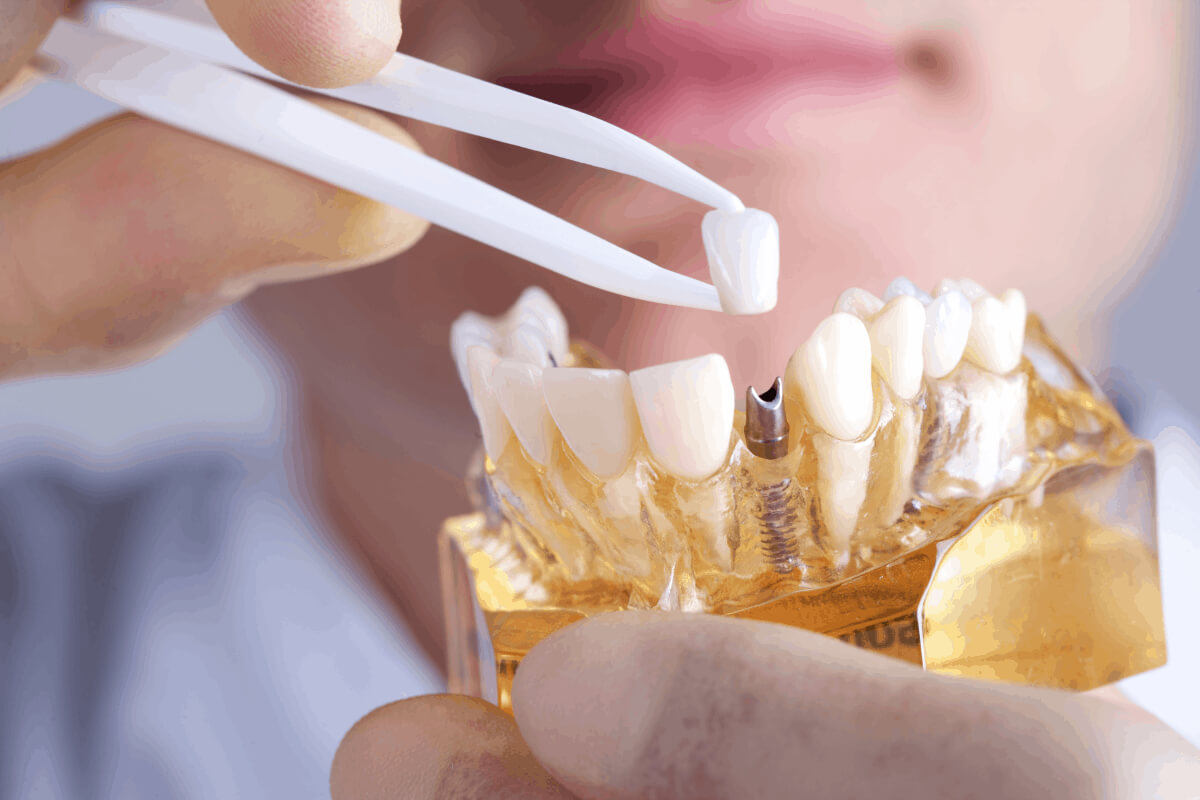Dental implants are the gold standard when it comes to permanently solving the myriad problems associated with tooth loss. Implants can be used to replace single teeth, multiple teeth or even support replacements for entire arches of missing teeth. Complications arising from the placement of dental implants by a dentist in Millwoods are very rare, but possible. Considering the expense and effort involved in obtaining dental implants near you, the very last thing you want is to face the consequences of infections that might threaten the integrity of your implant.
Here’s an explanation of some of the symptoms of a possible implant-related infection called peri-implantitis and how to reduce the risk of developing an infection that may cause implant failure.
What are the symptoms of peri-implantitis?
Peri-implantitis is a form of gum disease that can cause inflammation, bone loss and even implant failure if left untreated. A peri-implantitis infection can emerge in the weeks and months after implant surgery, or months later. Here are some symptoms of peri-implantitis:
- Bad breath and a foul taste in your mouth that persists despite regular and careful tooth brushing and mouthwash
- Pus and bleeding from your gums near the site of your implant, whether it occurs while brushing and flossing or otherwise
- Difficulty chewing with the restoration connected to your implant
- Red or swollen gums near the site of your implant, even if the gums do not appear to bleed or emit pus
- If your implant appears or feels loose or unstable
How to reduce the risk of developing peri-implantitis infections
Obtain implants with the highest quality materials
Implants made from titanium bond securely to your natural bone tissue through a process called osseointegration, through which the body accepts the implant as if it were natural bone tissue. If a dentist near you uses less high-quality implants made of less ideal materials, the implant may not bond with the bone and increase the risk of infection.
Brush your teeth gently
Brush your implant and restore (crown or bridge, for example) just like you would natural teeth twice daily. Brushing the restoration and your gums will help food particles, sugars, acids and bacteria that can contribute to the development of bacteria near your implant site.
Floss your teeth and implant daily
Flossing every day will help to dislodge food and debris that tends to accumulate between teeth and along and even below your gums. If using traditional dental floss doesn’t work well for you, try using alternatives like water flossers to clear away food particles and debris from hard to access parts of your mouth. It’s also essential — even with implants — to attend dental checkups every six months. During those checkups, your dentist will look into your oral hygiene, clean your teeth and gums thoroughly and look for any symptoms of any emerging infection.
Don’t smoke
Smoking is dangerous to your oral health generally, but is a particularly significant threat during surgical dental procedures, including implant surgery. Smoking delays your natural healing processes and can introduce bacteria into your mouth. To reduce your risk of developing any infection during surgery, you need to stop smoking for several weeks before surgery. To reduce your risk of developing an infection going forward, you should commit to a non-smoking lifestyle.
Implants are a life-long solution for tooth loss, but are not in any way a substitute for the need to attend dental checkups regularly. Neither does getting dental implants in Millwoods replace your natural gum tissue with infection-proof substances. As durable implants themselves are, infections of gum tissue are possible, albeit rare. If you experience any unexpected symptoms on and around your gums at any time after undergoing dental implant surgery, contact a dentist near you right away to get the advice and support you need.

